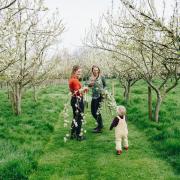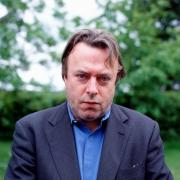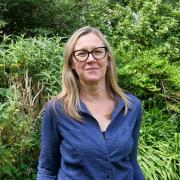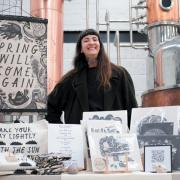It’s been a real privilege to be involved in the BBC Food and Farming Awards this year. Once again the UK’s finest farmers, food producers, cooks, shopkeepers, food vendors and campaigners came together to honour the best in their respective businesses. I’ll talk more about the awards themselves next month but this time it’s the backdrop to the ceremony I want to concentrate on.
The awards took place in Bristol and launched the city’s Food Connections festival, a nine day celebration aimed at bringing people and food together. The BBC staged a series of shows during the festival including a special edition of Farming Today, recorded in front of an audience. The programme looked at the prospects for the next generation of farmers and agricultural workers.
Encouraging keen, inspiring young people in to the industry is something I’ve been doing for a long time. After all, it’s a growth area - with global population figures set to rise, which means demand for food will increase and farming will be more important than ever. So it’s vital that people considering a future in the industry know that the stereotype of the middle aged man in tweed leaning on a five-bar gate is far from reality. In 2015 it’s all about technological innovation, inventiveness and opportunity.
For instance, when you send a modern combine across a field you don’t, technically speaking, need a driver in the cab any more. At present it’s still law to have an operator on-board but the majority of the work is now done by GPS satellites. It means farm machinery is steered automatically and can navigate in a perfectly straight line. There are tractors which can operate independently with just one person in charge of six or seven machines.
Some estates are now using drones which can be sent over a field to analyse exactly what’s going on with the soil and the crop. The farmer then uses another computer to work out the amount of water, fertiliser and extra nutrients that are needed.
So farming is becoming far more diverse and hi-tech and it needs people with a whole array of skills. Not long ago agricultural colleges like Seale-Hayne in Devon, where I went, sadly closed down due to the lack of interest in farming courses. Now the situation couldn’t be more different; there’s huge interest and agricultural faculties are bursting at the seams with enthusiastic farmers of the future.
That could be down to three things; the profile and professionalism of modern farming, renewed interest in knowing where our food comes from and the positive portrayal of farming in magazines and on TV (thanks partly to the success of shows like ‘Countryfile’). As the ‘Farming Today’ audience discovered in Bristol, it’s good to know that things are looking up for British agriculture.



























